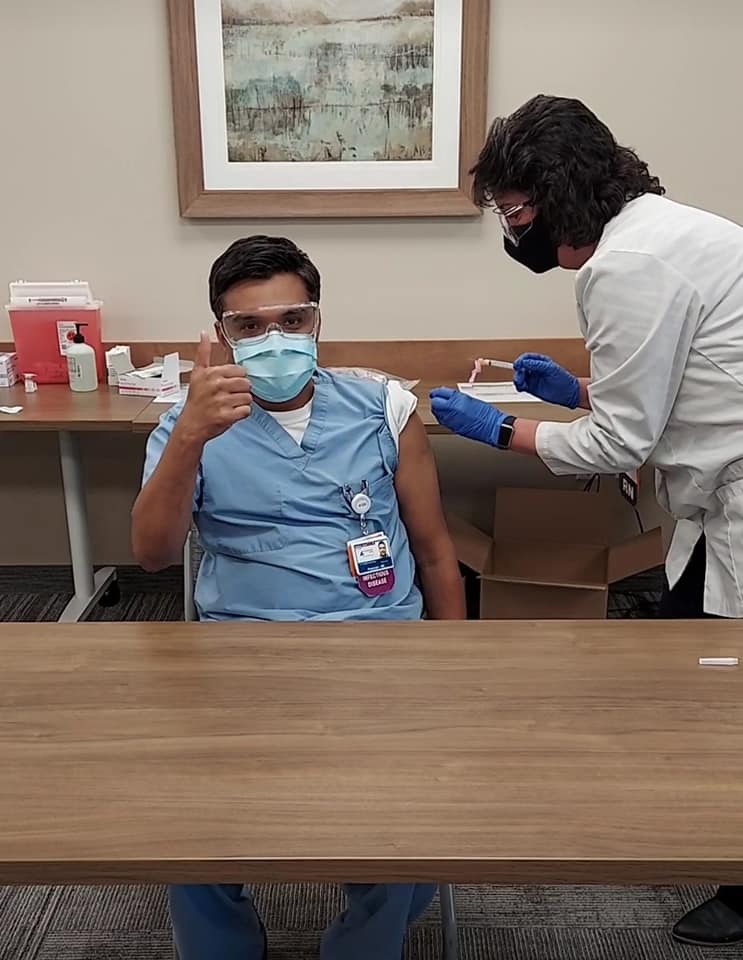
As the COVID-19 vaccine becomes more widely available in the coming months, it’s important for people to know the facts about the vaccine to make sure they are making an informed decision about whether or not to receive it. Dr. Raghavendra Tirupathi, Medical Director at Keystone Infectious Diseases, answers some questions related to the vaccine in today’s article.
There’s been a lot of talk about these vaccines being mRNA vaccines. What does that mean?
mRNA stands for Messenger RNA. RNA is a single-stranded molecule that is naturally present in all of our cells. It carries the instructions for making proteins from our genes, located in the cell nucleus, to the cytoplasm, which is the main body of our cells. An mRNA vaccine delivers the instructions for making a bacterial or viral protein to our cells. Our immune system then responds to these proteins and develops the tools to react to future infections with the pathogen. mRNA vaccine technology is not new, but there were no mRNA vaccines that had approval for use in humans until recently.
Can the vaccine alter the genetic code?
The human cells efficiently clear the mRNA after the process of translation into spike proteins. The mRNA does not enter the nucleus or alter the human genetic code.
What are current recommendations for pregnant or breastfeeding women?
There is not yet official safety or efficacy data available for the vaccine in pregnant or breastfeeding women. We do know that mRNA vaccines are not live virus vaccines, so they cannot transfer the virus through the placenta or breast milk.
The American College of Obstetricians and Gynecologists, the CDC and other national organizations are recommending pregnant or breastfeeding patients have a discussion with their healthcare provider to help them make an informed decision on whether or not to be vaccinated. Their healthcare provider can help them make a choice based on available data, which may include the level of activity of the virus in the community, the potential efficacy of the vaccine, the risk and potential severity of maternal disease including the effects of disease on the fetus and newborn, and the safety of the vaccine for the pregnant patient and the fetus. Pregnant women who experience fever following vaccination should be counseled to take acetaminophen, as fever has been associated with adverse pregnancy outcomes.
A pregnancy test is not needed before administering the vaccine in women of reproductive age.
What are the tiers of vaccination?
Pennsylvania is currently in Tier 1A of vaccination, during which time people most at-risk can receive the vaccine. This includes healthcare workers, people in long-term care facilities, people age 65 and older and those age 16-64 with high-risk conditions.
Tier 1B includes first responders, correctional officers and others caring for people in congregate settings, people receiving home and community-based services, people caring for children or adults in early childhood and adult day programs, and essential workers such as postal employees, and those who work in the food, agriculture, grocery store, education, manufacturing or public transit industries.
Tier 1C includes essential workers not previously covered in the first two phases, including those in the following industries: food service, transportation and logistics, water and wastewater, construction, finance, legal services, government, media, public safety, communications, information technology and energy.
Phase 2 will include all individuals not previously covered. In this phase, those who are age 16 and older and who do not have a contraindication (a reason to not get the vaccine, such as an allergy to one or more of the ingredients) can be vaccinated.
When will the vaccine be available to the entire community?
Pennsylvania is now advancing to tier 1B. I anticipate the vaccine should be available to everyone by the end of February or beginning of March.
What should people who are hesitant to get the vaccine consider?
I want to reemphasize that this vaccine is overwhelmingly safe and very effective in preventing disease due to COVID-19. I think everyone who is able to receive the vaccine should do so in order to keep ourselves and our families safe.
What would you say to people who are still not taking COVID seriously?
COVID-19 has taken the lives of many in our community. We all need to do the right thing including masking, social distancing, avoiding crowds and eventually we can get back to baseline by vaccinating a large portion of our community leading to herd immunity.
This article contains general information only and should not be used as a substitute for professional diagnosis, treatment or care by a qualified health care provider.




